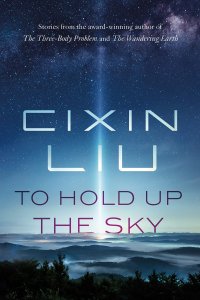Faren Miller reviews Alaya Dawn Johnson
We first see Emily Bird, teenage heroine and viewpoint character of Love Is the Drug, waking up in a Washington DC hospital. She turns out to be fortunate in many ways, beginning with her heritage and station as the child of privileged black scientists, both deeply involved in work for the government, she is close to graduating from an elite prep school with honors sure to appeal to all the best colleges, dating a glamorous young man from her own social set. And yet the greatest luck may simply be survival, untouched by the plague that’s raging through this near-future: some kind of mutant flu with gestation periods and symptoms similar to Ebola’s, a less drastic fatality rate but far more victims due to its rapid spread worldwide (including parts of the US) – apparently the work of ruthless terrorists. Citing a socialist regime in Venezuela as the most likely suspect, America is already at war, and by this point nowhere seems truly safe. Emily’s hospital window looks out on a street, weirdly empty ‘‘until a solitary tank grumbles down the road, guns steady.’’ Curfews and quarantines abound.
Against such a background, her bout of amnesia after a party seems trivial, even if it was triggered by a date-rape drug (as some fellow guests believe) – unless there’s a connection to the threat of global apocalypse. Something has attracted government agent Roosevelt to her case. At the hospital where Emily stays overnight, then at her Uncle Nicky’s (where she retreats as large parts of DC go under quarantine), he keeps grilling her about the lost hours. Though her pal Coffee – in many ways the opposite of boyfriend Paul – is an avid chemistry student and occasional dealer, born in Brazil, no one as intimidating and obsessive as Roosevelt could simply want to throw a monkey wrench into the drug trade.
Coffee and the girl he likes to call by her last name explore the mystery in different ways. He wants to find a drug to break apart her mental block. Bird’s inner being (maddeningly out of reach) tosses out its own occasional clues to the puzzle. Meanwhile, she and a young nephew roam Nicky’s huge library of black music, exploring a culture that his wayward father loves but most of her family has largely rejected.
Chemistry and the scientific method pervade this book, where each chapter title follows a [substance name] with its atomic formula. Bird wants to find out what her parents are really doing in their secret government lab almost as fervently as she needs to understand her own nature and figure out what she can make of it – outside the trajectory they planned as a nonstop path to success. Blending elements of mainstream YA, dystopian SF, and political thriller, Love Is the Drug manages to fascinate, wherever and whenever it may go.








